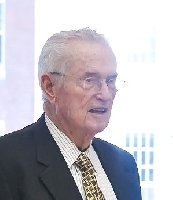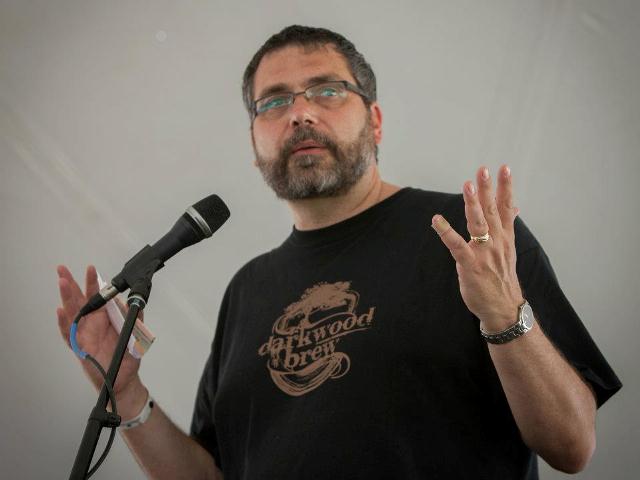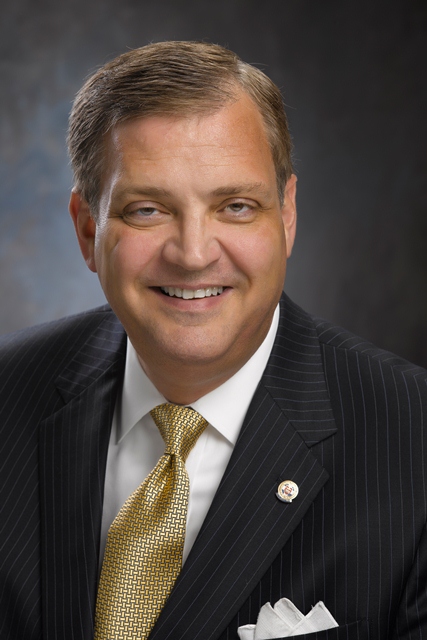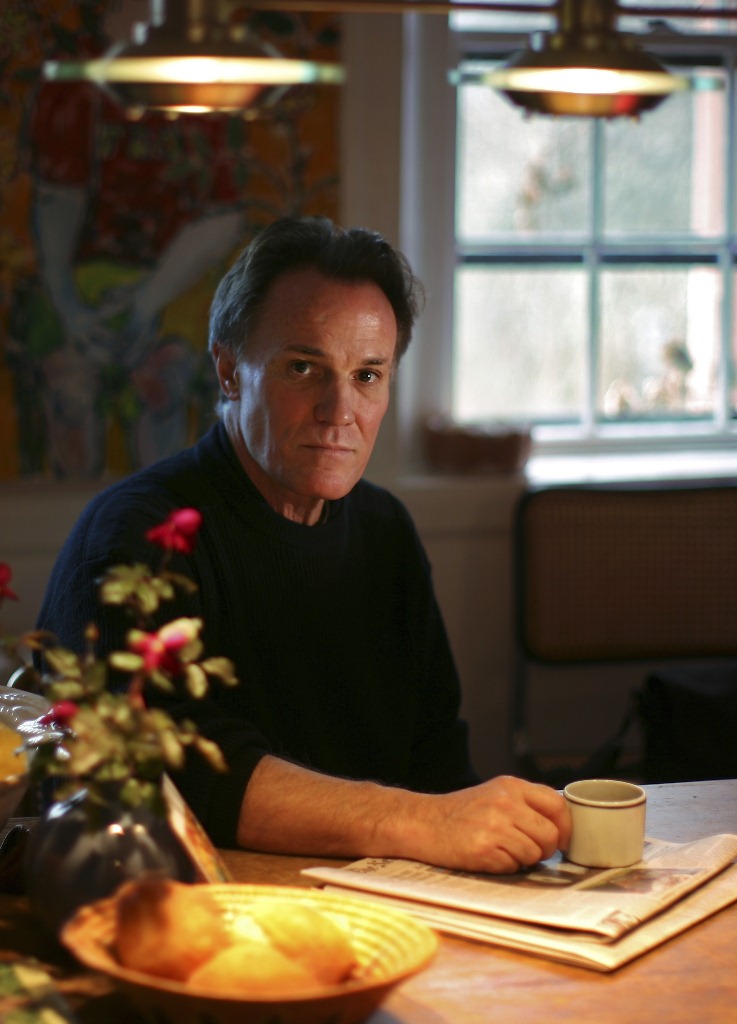By Jeff Brumley
If Facebook is any measure, Americans are emerging from the 2012 election season convinced the nation’s political and religious divisions are wider and more hostile than ever – and getting worse.
But not Duke McCall, 98, the Baptist elder statesman and progressive known for befriending the leading fundamentalists of his day.
 “I think we are moving toward a time when we will not be quite so antagonistic in the world of politics and religion,” said McCall, who led various Southern Baptist agencies and the Baptist World Alliance before his retirement in the 1980s.
“I think we are moving toward a time when we will not be quite so antagonistic in the world of politics and religion,” said McCall, who led various Southern Baptist agencies and the Baptist World Alliance before his retirement in the 1980s.
He may not be alone. Observers are tracking the convergence movement, a small-but-growing alliance of disillusioned conservatives and liberals optimistic about the future of American Christianity.
Other experts say there are signs that some Baptists are feeling the convergence vibe and joining hands across a chasm that’s divided them since the 1980s.
But other Baptists are more skeptical, and describe the trend simply as rebranded Christian liberalism with little chance of success among faithful believers on either side.
‘More common ground’
The proponents of convergence deny that, noting that many liberal traits are rejected in the movement along with conservative ones.
“This is a meeting ground between what might be called … post-evangelicals and post-progressives,” said Eric Elnes, a Nebraska mega-church pastor and author whose Darkwood Brew internet ministry caters to this spiritual demographic.
 Elnes leads a United Church of Christ congregation in Omaha and was the author of the Phoenix Affirmations, which called Christians to treat others fairly regardless of race, religion or sexual orientation.
Elnes leads a United Church of Christ congregation in Omaha and was the author of the Phoenix Affirmations, which called Christians to treat others fairly regardless of race, religion or sexual orientation.
But convergence Christianity, he said, is different because it seeks to avoid theological extremes on either end.
Participating conservatives yearn for a kinder, less dogmatic theology that embraces mystery. The progressives desire a faith that values evangelism, firm beliefs in Christ and avoids political correctness, Elnes said.
“People are trusting that they have more common ground than differences,” he said.
‘Wholesale theological liberalism’
But the concept has its skeptics and Albert Mohler, president of Southern Baptist Theological Seminary, is one of them.

Some of the high-profile leaders of convergence Christianity are also connected to other post-denominational movements, Mohler said. One of them is the emergent church, which seeks to transcend denominational labels to reach a post-modern culture.
Convergence Christianity, Mohler said, likely is “an effort to rebrand some kind of mediating position” between evangelicals and Mainline Protestants.
“It doesn’t look like there’s some middle refuge there,” he added. “It’s rather wholesale theological liberalism.”
Nor does Mohler believe the trend will gain much headway among conservative and liberal Baptists, because the gulf remains too great between them — especially on biblical inerrancy, homosexuality and same-sex marriage.
That separation will continue to preclude cooperation on missions because Baptists as a whole “end up associating with the Baptists with whom we agree,” he said.
‘Not some mushy middle’
But seemingly insurmountable differences can be overcome, said Frank Schaeffer, the son of famed conservative theologian Francis Schaeffer.
Schaeffer once embraced his father’s teachings, which are considered the foundation of the rise of the Religious Right.
 But he eventually converted to Orthodox Christianity and wrote Crazy for God: How I Grew Up As One of the Elect, Helped Found the Religious Right and Lived to Take All (or Almost All) of it Back in 2007.
But he eventually converted to Orthodox Christianity and wrote Crazy for God: How I Grew Up As One of the Elect, Helped Found the Religious Right and Lived to Take All (or Almost All) of it Back in 2007.
Schaeffer is now friends with former theological opponents – including Elnes – and said he sees the seeds of similar transformations in the convergence movement.
“There is not going to be a future to the witness of the gospel unless these sides can agree to back down and meet – not in some mushy middle – but in respect for each other,” Schaeffer said.
Schaeffer said he doesn’t foresee a new denomination or other structure coming out of convergence, but rather alliances being formed around issues like human trafficking and global climate change.
“This isn’t regional … this isn’t liberal,” he said. “It’s rejecting the hard edge of the theological right and the political correctness of the theological left.”
‘Just opting out’
And “this is happening already” among Baptists, said Bill Leonard, professor of Baptist studies and church history at the Wake Forest University divinity school.

Younger Baptists — liberals and conservatives — are forging relationships through social networking around common causes. “And the environment is one of those,” he said.
Younger evangelicals are reportedly less interested in the homosexuality issue than their elders, Leonard said. They are also more likely to embrace the social use of alcohol than previous generations of Baptists.
Meanwhile, others disavow the “anti-Jesus talk” in some liberal congregations, Leonard said.
Both groups, he added, worry that the church too closely reflects the nation’s hostile political divisions. “A younger generation is just tired of the constant bickering and division in the church.”
All of this likely explains, Leonard said, why a recent Pew poll found that the number of religiously unaffiliated Americans – known as the ‘Nones’ — has grown to a third of adults under 30 and 20 percent of all adults.
“Studies show people leaving evangelical churches and not showing up at the progressive churches,” Leonard said. “They are just opting out.”
Believing in hope
The kinds of friendships being developed in convergence Christianity once were the norm in America – even among Southern Baptists, McCall said.
Back in the day, McCall said, he was close friends with W.A. Criswell and other conservatives with whom he vigorously disagreed and argued.
“If he thought it was black, I thought it was white,” McCall said.
Yet those disagreements were never considered personal. “I believed in the sincerity of his Christian commitment, and he in mine,” McCall said.
Even in retirement in Palm Beach Gardens, Fla., McCall said he’s been reaching out to conservative institutions and individuals to arrange activities.
So far, to no avail. “I have friends who make fun of me because of my efforts,” he said. “But I still believe there’s hope.”
